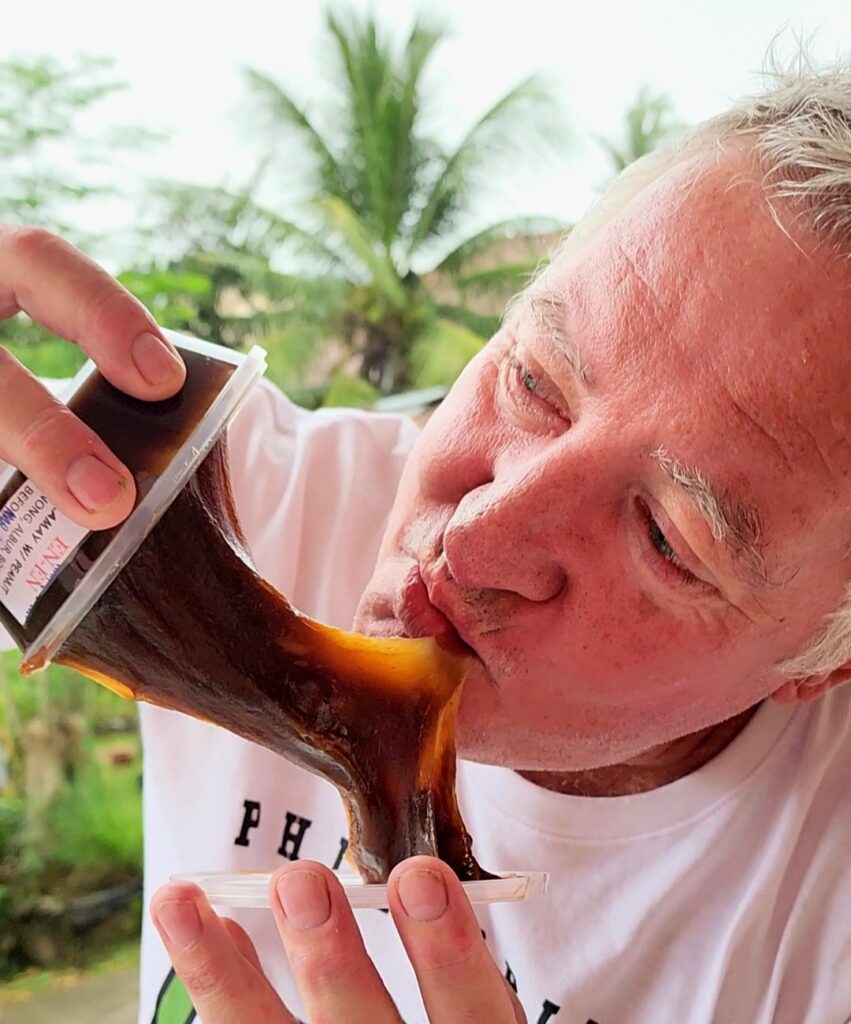Bohol island in the Philippines, is not only known for its pristine beaches, chocolate hills and tarsiers but also for its rich artisanal heritage.
We took a DIY day trip in a tricab to discover Bohol’s skilled craftsmen and their time-honored traditions.
1. Calamay Makers: Sweet Creations from Alburquerque
Location: Alburquerque, Bohol
https://maps.app.goo.gl/t5a9d9wTUb4meAXD6
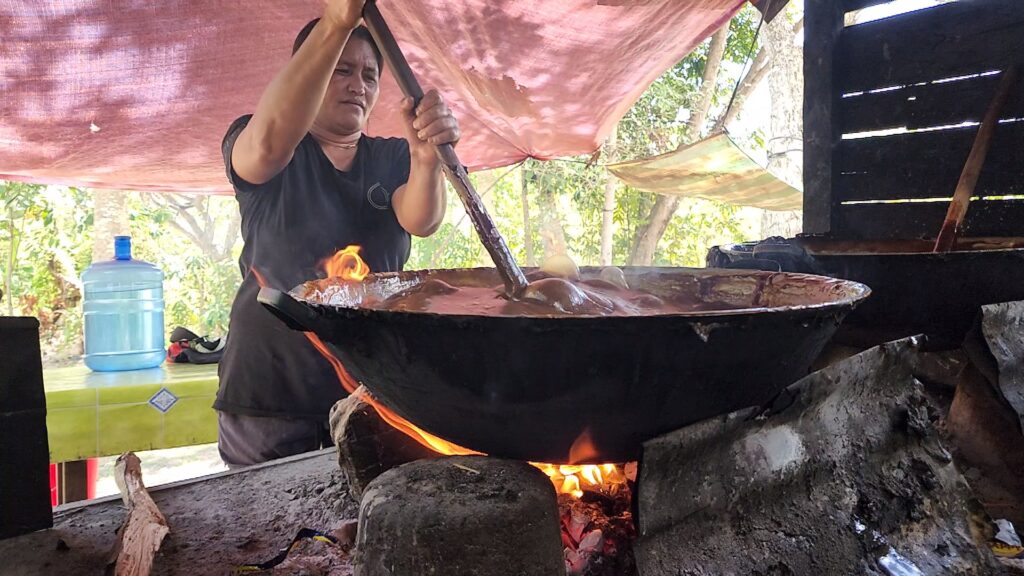
Calamay, also known as “kalamay,” is a delectable treat made from finely ground sticky rice, coconut milk, dark sugar, vanilla, margarine, and peanuts.
You can watch it here:
The mixture is painstakingly cooked in huge woks over an open fire, until it achieves a sticky consistency. It takes about 2 to 3 hours. I gave it a go, it’s really hard to mix.
You would usually go to Jagna to see calamay being made, but we also found it in Alburquerque, which is a lot closer to Tagbilaran. It is a simple backyard operation, but they are very friendly and welcoming. By purchasing calamay here, you directly support local families. We paid 50 peso for a jar.
How does it taste?
It’s very sticky and a bit gluey. Surprisingly not too sweet, I think it would be great with ice cream or like a jam.
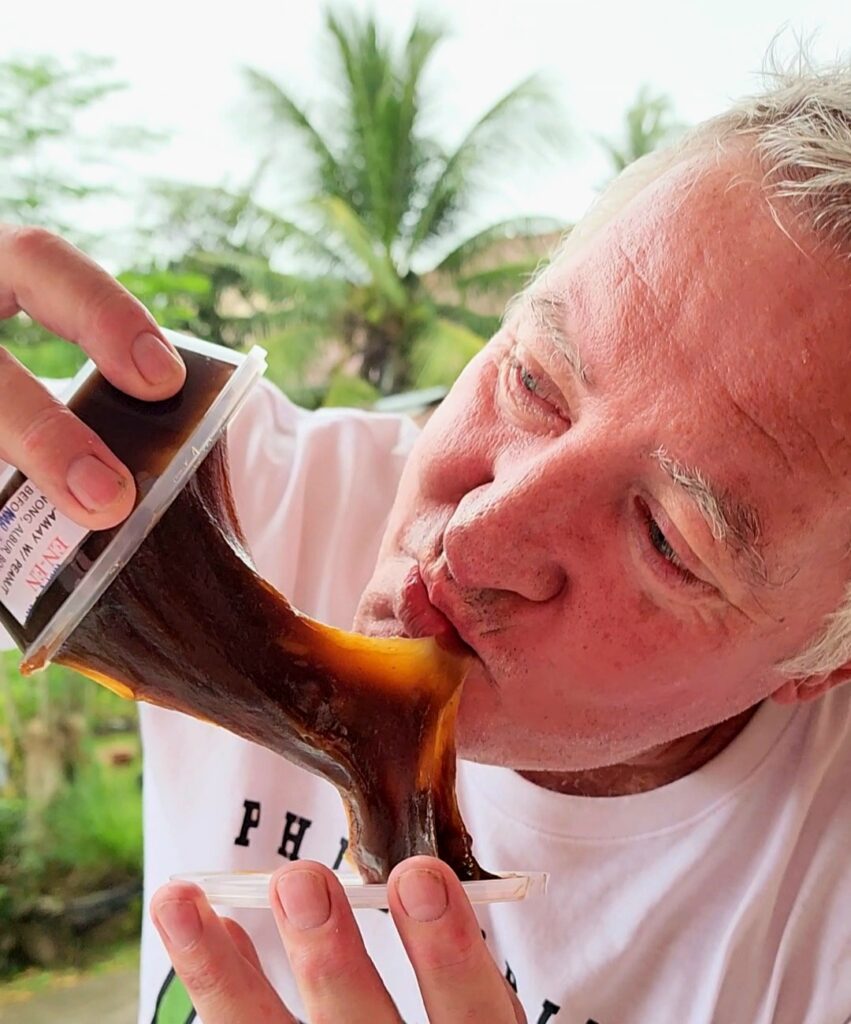
They could add some colours and edible glitter, that would be fun. Edible slime 😋
2. Salt Makers: Asin Tibuok from Alburquerque
Location: Alburquerque, Bohol
https://maps.app.goo.gl/nfkNL9kjb9MQgy6x5
In Alburquerque, the Tan Inong Manufacturing Corporation preserves the ancient art of salt making. Their flagship product, Asin Tibuok, meaning “unbroken salt,” reflects centuries-old techniques.
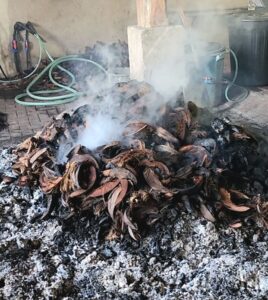
It’s a bit of a mission to get there, you have to drive through a basketball court. Yup, though it.
The process begins with coconut husks soaked in saltwater pools, followed by sun-drying and controlled burning. The resulting salty ashes are then filtered to create a highly concentrated brine, which is poured into clay pots over wood fires. Surprisingly, the salty ash was not actually that salty. Yes, you can taste it.
The brine water is slowly poured into clay pots and evaporated over an open fire.
You can see the process at the factory here, and there is also a display at the museum in Tagbilaran.
Quite remarkably, the end product looks like a dinosaur or dodo egg. There’s a big one along the road where you can purchase the salt.
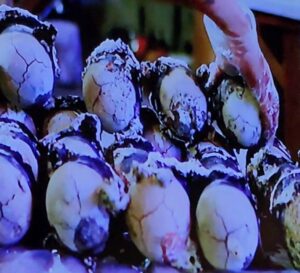
3. Blacksmiths: Forging Tradition in Loay
Location: Loay, Bohol
https://maps.app.goo.gl/vu3LLct2Umnhk4ma8
Loay’s local blacksmiths, situated in Villa Limpa, continue to practice the age-old craft of metalwork.
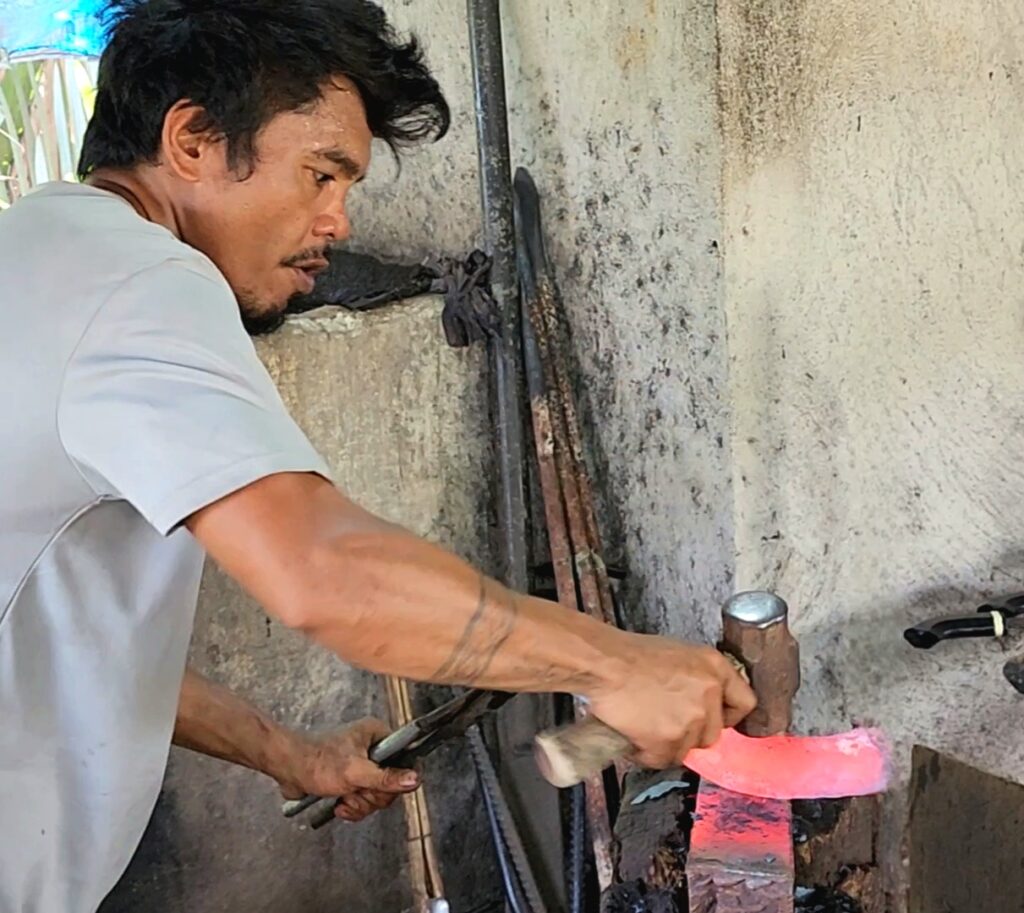
These skilled artisans create high-quality tools, including the iconic Filipino bolos (similar to machetes). Despite the rise of modern technology, Loay’s residential blacksmiths remain committed to their traditional methods.
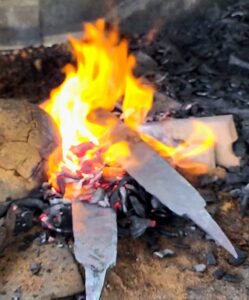
You can watch the forging process and even request custom-made tools. They do repairs and sharpening as well. They should put a donation box for tourists to be able to contribute without purchasing.
The town’s blacksmithing heritage is deeply rooted in its culture and livelihood. The weapons carried by Sikatuna at the Blood Compact would have been made the same way.
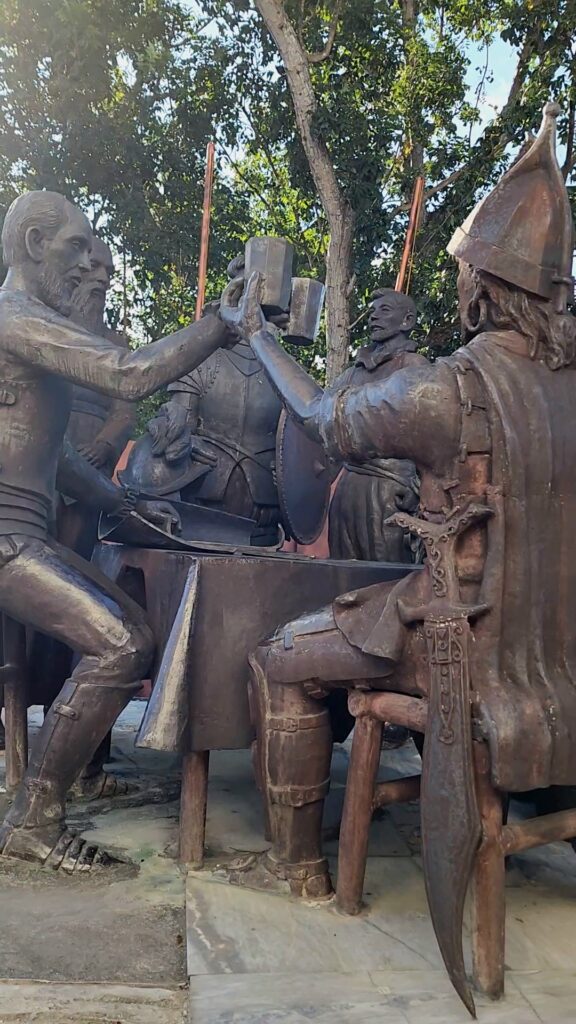
4. Chocolate Tablea Makers: El Tablea in Baclayon
Location: Baclayon, Bohol
https://maps.app.goo.gl/doZA29FDB7Z3LRHp9
El Tablea, nestled in Baclayon, celebrates the rich tradition of Filipino hot chocolate. This family run business is amazing.
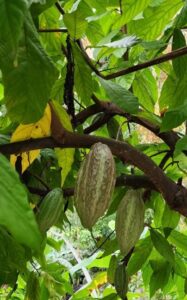
The tablea, made from pure cacao beans, is a cornerstone of Boholano culture. The process involves labor-intensive steps. The chocolate is usually drunk unsweetened which almost tastes like coffee due to the bitterness.
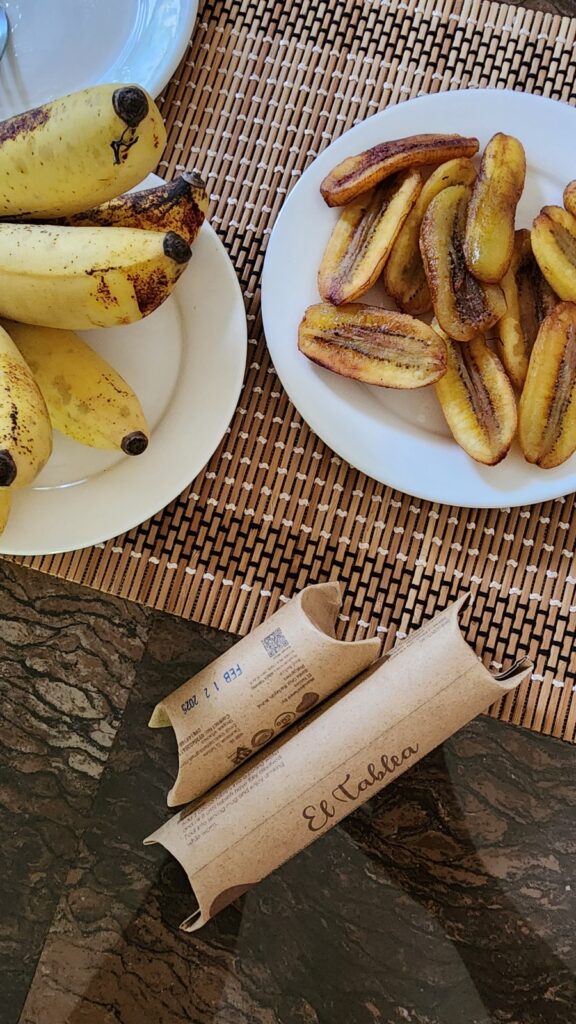
At El Tablea, you can explore their family farm. Make an appointment first as this is a family business. They welcomed us into their home and made ‘merienda’. It was an amazing experience with the most delicious little fried bananas.
Contact them on Facebook below:
https://www.facebook.com/ElTablea?mibextid=ZbWKwL
5. Conclusion
If you know of other artisans in Bohol or in the Philippines, please put a comment below or contact us on one of our sites.
If this article helped you, consider buying us a coffee.
